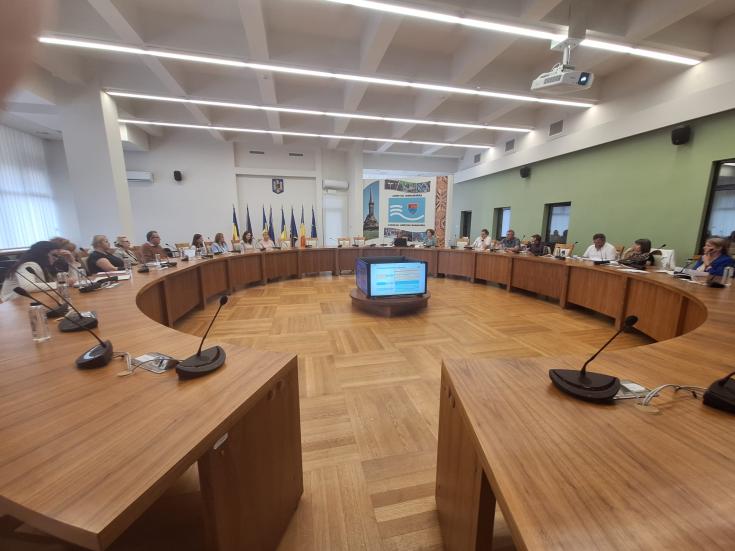First meeting of the stakeholders from Maramures
The project "CIBUS - Reducing food losses and waste in Europe", is implemented by an international partnership, in the period 2024-2028, in the frame of INTERREG EUROPE 2021-2027 Program.
The general objective of CIBUS project is to reduce food losses and waste along the food production and supply chain, by increasing the capacity of regional authorities to develop and implement innovative public policies.
As partner in CIBUS project, Maramures County Council organized this meeting in order to start the collaboration with the stake holders interested in the project theme from Maramureș County, namely public institutions with a control role, hospitals, UATs, the university environment and non-governmental associations.
Thus, the meeting was attended by representatives from the Maramureș Intercommunity Development Association for the Integrated Management of Household Waste, Cluj Napoca Technical University – North University Center Baia Mare, the General Directorate of Social Assistance and Child Protection Maramureș, the Veterinary Sanitary and Food Safety Directorate, Emergency County Hospital "Dr. Constantin Opriș" Baia Mare, Baia Mare Infectious Diseases and Psychiatry Hospital, ASSOC and Food Bank Association Maramureș, as well as from some administrative-territorial units in the county: Baia Mare, Sighetu Marmației and Baia Sprie.
Mihaela Lițe - CIBUS project manager and Margareta Capilnean - responsible for communication at the level of the entire CIBUS partnership, on behalf the Maramureș County Council, presented the CIBUS project in the opening of the meeting: objectives, partnership, implementation stages, budget and main activities.
One of the objectives of the project is to create a platform where stakeholders can share examples of good practices, learn from the experience of project partners and identify impact measures to reduce food waste.
The policy instrument that will be improved by the Maramureș County Council, within the CIBUS Project, is the "County Waste Management Plan 2019 - 2025".
During the meeting, the following topics have been discussed: the current situation of food waste and the costs of its neutralization, the reduction of food waste and the challenges of consumerism, the benefits of composting vegetable waste, procedures for donating food with a shelf life that is approaching its expiration to the Food Bank and its transfer to associations with a social purpose, the donation of food cooked by restaurants and canteens and not consumed to shelters for stray animals, and last but not least, scientific research methods that obtain biological compounds with various uses and create food us from vegetable waste.
At the end of the meeting, proposals were made to make the selective collection of waste more efficient, focusing on methods to raise awareness and educate the population in order to reduce food waste and develop the circular economy.
